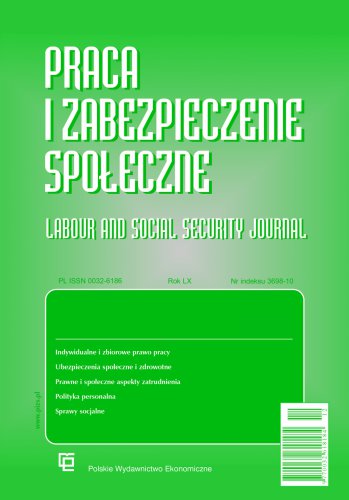Labour and Social Security Journal 05/2021
ISSN: 0032-6186
Pages: 60
Publication date: 2021
Place publication: Warszawa
Binding: paperback
Format: A4
Publication date: 2021
Place publication: Warszawa
Binding: paperback
Format: A4
DOI: 10.33226/0032-6186.2021.5.1
JEL: K00, K10, K31
DOI: 10.33226/0032-6186.2021.5.2
JEL: K31
DOI: 10.33226/0032-6186.2021.5.3
JEL: K31, K33
DOI: 10.33226/0032-6186.2021.5.4
JEL: K31
DOI: 10.33226/0032-6186.2021.5.5
JEL: K31
DOI: 10.33226/0032-6186.2021.5.6
JEL: K31
DOI: 10.33226/0032-6186.2021.5.7
JEL: H55
| Odbiór osobisty | 0 € |
| Kurier Inpost | 4 € |
| Kurier FedEX | 4 € |
| Inpost Paczkomaty | 4 € |
| Free delivery in Reader's Club | from 47 € |

